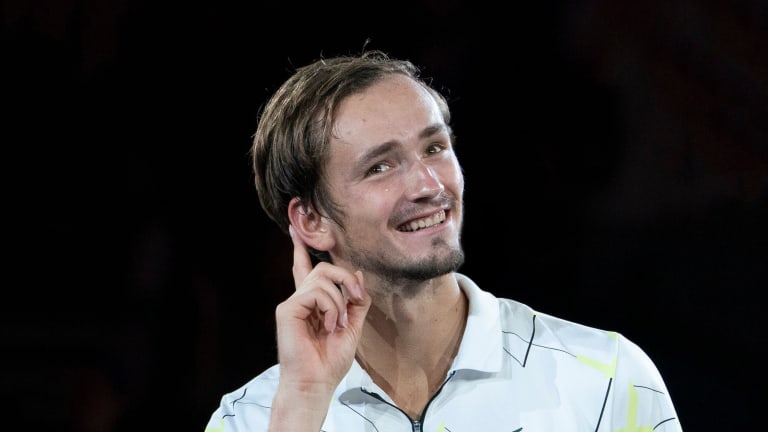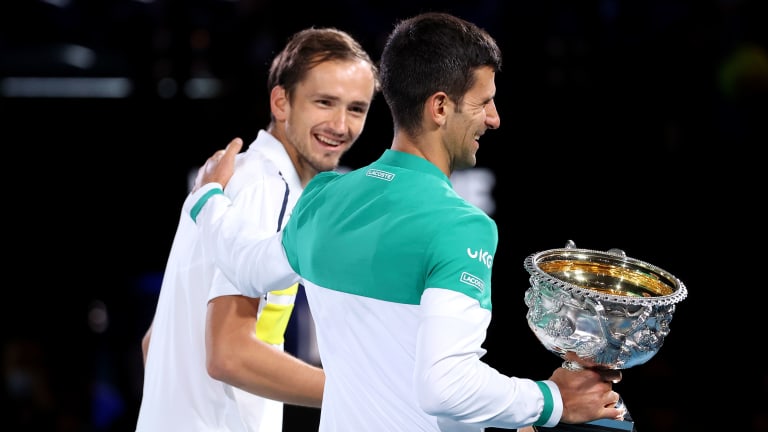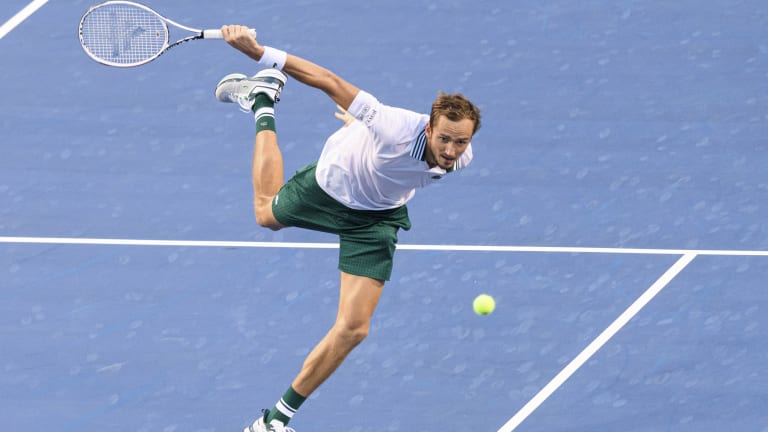In a pavlova, baked meringue edges provide a crunch before the shell yields to reveal a gooey, marshmallow center. Ladyfingers soaked in espresso and marsala wine are met with luscious mascarpone cheese and a cocoa-powder topping to complete a tiramisu. Panna cotta can melt in your mouth, if the infused cooked cream achieves an immaculate tender wobble. Frangipane encased by delicate golden flakes exuding a buttery perfume are the crux of an almond croissant.
All of these divine treats are as simple as they are complex. Looking beyond their flavors uncovers layers of technique, texture and touch that make each end product exceptional. And conceivably, it’s why these four indulgences are favorites of Daniil Medvedev—an enigmatic tennis player with a layered personality and a game that continues to develop in the test kitchen.
“I just like sugar,” he shares in our interview from Marseille. “When I was really young, I was capable of eating sugar from the small bag for the tea.”
Over the past four years, Medvedev has been a sweet addition to the highest echelon of the ATP. When he broke onto the scene, the Russian’s menu of offerings was overwhelmed by an excessive extract—aggression built on swinging for winners, no matter the situation. At 6’6’’, Medvedev eventually recognized that his reach, movement and serve were untapped assets that would aid in savoring more victories. Learning how to come forward and slice effectively were inviting enhancements.
Through this process, Medvedev grew to understand his brand of tennis was in many ways a reflection of his character, one baked with salty, sharp and spicy notes.
“It’s always tough to know yourself. You feel like you know and then something happens in your life where you say, ‘OK, maybe I changed,” ponders Medvedev. “Maybe I didn’t know this part of myself.’ And that’s the same on the tennis court.
“My goal is to be the most universal player possible. Sometimes, we say that it’s better to have one shot that works 100 percent of the time, than 100 shots that work 80 percent of the time. For me, it’s the second one. I want to be sure in my game that I’m capable of a lot of things.
“All the small details are really fun for me. I like to work on them. And that’s what I like about my game.”
By focusing on perfecting his unique recipe, Medvedev has proven to be one tough cookie. Take Milos Raonic, who at the start of August owned eight hard-court titles. Despite his first-strike approach anchored by a spectacular serve, the Canadian has lost all three meetings to Medvedev on the surface.


